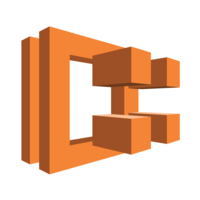Need advice about which tool to choose?Ask the StackShare community!
AWS Fargate vs Amazon EKS: What are the differences?
Introduction
In this article, we will explore the key differences between AWS Fargate and Amazon EKS.
-
Deployment Model:
- AWS Fargate: With Fargate, you can create and manage containers without the need to manage the underlying infrastructure. It abstracts away the EC2 instances and allows you to focus solely on deploying and running your containers.
- Amazon EKS: EKS (Elastic Kubernetes Service) is a managed Kubernetes service provided by AWS. It allows you to run Kubernetes on AWS without the need to manage the control plane. You have fine-grained control over the underlying infrastructure, including the EC2 instances.
-
Orchestration:
- AWS Fargate: Fargate provides a serverless compute engine for containers. It automatically scales your containers based on demand and handles all the orchestration tasks, such as scaling, load balancing, and logging.
- Amazon EKS: EKS uses Kubernetes as the orchestration platform. It provides a fully managed Kubernetes control plane, allowing you to deploy and manage containerized applications using Kubernetes features and tools. You have more control and flexibility in managing your workloads compared to Fargate.
-
Networking:
- AWS Fargate: Fargate supports VPC networking, allowing you to leverage various AWS networking components like load balancers, security groups, and private subnets. You can configure network ACLs and use VPC endpoints for integrating with other AWS services.
- Amazon EKS: EKS integrates tightly with AWS VPC, providing you complete control over your network setup. You can define custom networking configurations using VPC features like subnets, routing tables, and security groups. EKS also supports the integration of third-party networking solutions.
-
Pricing Model:
- AWS Fargate: Fargate pricing is based on the amount of vCPU and memory resources consumed by your containers. You pay for the resources allocated to your containers and the duration of their execution.
- Amazon EKS: EKS pricing is based on the underlying EC2 instances used to run your workload. You pay for the EC2 instances and any other AWS resources associated with your EKS cluster, such as load balancers and storage volumes.
-
Flexibility and Portability:
- AWS Fargate: Fargate provides a high level of abstraction and simplifies the deployment of containers. It allows you to develop and deploy your applications without worrying about the underlying infrastructure. However, this reduces the level of control and customization available.
- Amazon EKS: EKS allows you to leverage the full power of Kubernetes for managing your containerized applications. It offers more flexibility and portability, allowing you to move your workloads across different cloud providers or on-premises environments, as long as they support Kubernetes.
-
Integration with AWS Services:
- AWS Fargate: Fargate integrates well with various AWS services such as Elastic Load Balancer (ELB), Amazon RDS, Amazon S3, and others. It allows you to seamlessly connect your containers with these services.
- Amazon EKS: EKS provides tight integration with other AWS services, enabling you to leverage the full ecosystem of AWS services for building your applications. You can easily integrate with services like AWS CloudWatch, AWS Identity and Access Management (IAM), AWS Secrets Manager, and more.
In Summary, AWS Fargate is a serverless compute engine for containers, providing simplicity and abstraction, while Amazon EKS is a managed Kubernetes service offering fine-grained control over the infrastructure and flexibility for managing containerized applications.
If you want to integrate your cluster and control end to end your pipeline with AWS tools like ECR and Code Pipeline your best option is ECS using a EC2 instance. There are pros and cons but it's easier to integrate using cloud formation templates and visual UI for approvals, etc. ECS is free, you need to pay only for the EC2 instance but unfortunately, it is not standard then you cannot use standard tools to see and manage your Kubernetes. EKS in the other hand uses standard Kubernates definitions but you need to pay for the service and also for the EC2 instance(s) you have in your cluster.
Pros of Amazon EKS
- Better control1
- Possibility to log in into the pods1
- Broad package manager using helm1
Pros of AWS Fargate
Sign up to add or upvote prosMake informed product decisions
Cons of Amazon EKS
Cons of AWS Fargate
- Expensive2
Sign up to add or upvote consMake informed product decisions
What is Amazon EKS?
What is AWS Fargate?
Need advice about which tool to choose?Ask the StackShare community!
What companies use Amazon EKS?
What companies use AWS Fargate?
Sign up to get full access to all the companiesMake informed product decisions
What tools integrate with Amazon EKS?
What tools integrate with AWS Fargate?
Sign up to get full access to all the tool integrationsMake informed product decisions
Blog Posts
Rafay Systems





































